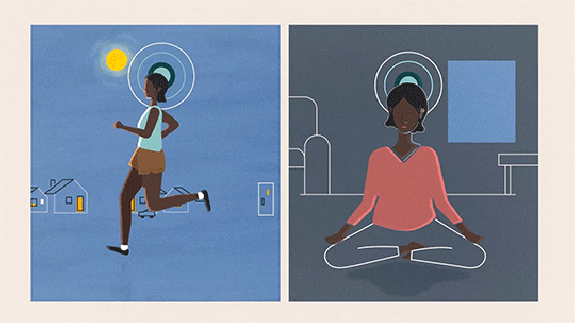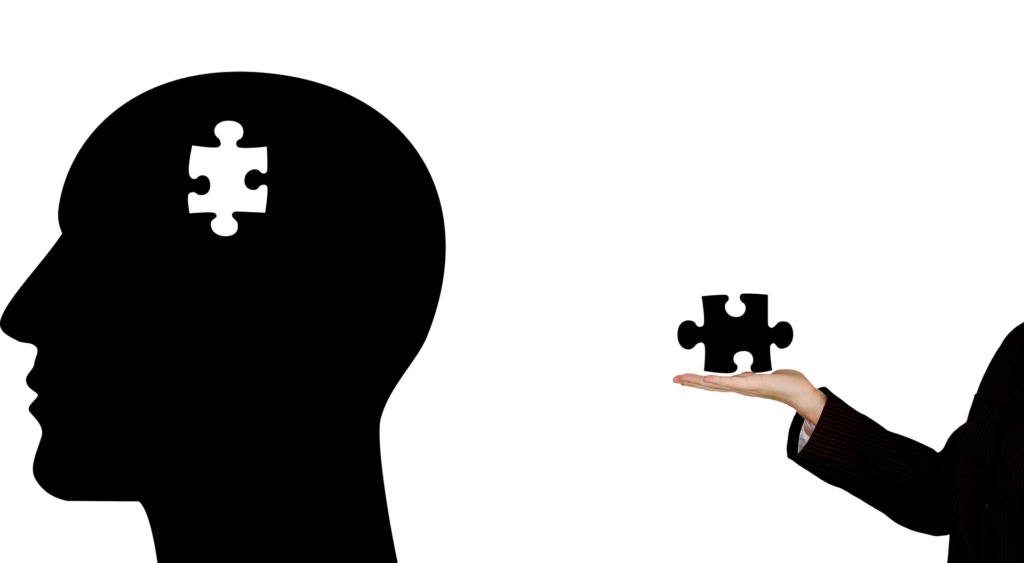Our psychological, emotional, and social well-being collectively form our mental health. Mental health is an integral part of human health. It determines how we think, feel, and respond. It also helps determine how we handle stress, anxiety related to others, and making choices in difficult
times. Mental health and inner peace are like the two sides os a coin. They go hand in hand. Mental health is essential throughout the various stages of life. Several factors contribute to mental health problems, including:
- Biological factors, such as genes
- Life experiences, such as trauma, accidents, or any form of abuse
- Family history

A physically fit body can only be achieved by healthy and robust mental fitness. Within the health-related Sustainable development goals, two targets are directly related to mental health and substance abuse.
- Target 3.4 “By 2030, reduce by one-third premature mortality from Non-communicable diseases through prevention and treatment and promote mental health and well-being.”
- Target 3.5 requests that countries: “Strengthen the prevention and treatment of substance abuse, including narcotic drug abuse and harmful use of alcohol.”
Mental disorders are among the leading causes of non-fatal disease in India, and the reports suggest One in seven Indians were affected by mental illnesses of varying severity in 2017, which has almost doubled since 1990. Thus, increasing awareness programs and government initiatives about mental health or conditions is no more taboo. Emotional and mental health is essential because it’s vital to life and impacts your thoughts, behaviors, and emotions. Being healthy emotionally can promote productivity and effectiveness in activities like work, school, or caregiving. It plays an integral part in your relationships’ health and allows you to adapt to your
life changes and copes with adversity.

Early Signs of Mental Health problems
- Eating or sleeping too much or too little
- Pulling away from people and usual activities
- Not interested or excited to do anything
- Feeling unexplained aches and pains
- Feeling helpless or hopeless
- Smoking, drinking or doing drugs
- Feeling unusually confused, forgetful, on edge, angry, upset, worried, or scared
- fighting with family and friends
- Experiencing severe mood swings that cause problems in relationships
- persistent thoughts and memories, and inability to get them out of the head.
- Thinking of harming yourself or others
- Failure to perform daily tasks
7 Things to keep in mind
- Chase dreams, not people.
- Love yourself, and the rest will follow.
- Never lose your sense of wonder.
- You are capable of more than you know.
- No regrets in life. Just lessons learned.
- Your only limit is you.
- Life goes by in a blink of an eye. So live life.

Things you don’t need to feel guilty about
- Telling people NO.
- Your flaws and imperfections.
- Being unproductive.
- Doing what’s best for you.
- Standing up for yourself.
- Declining a social call.
what is self-sabotage
- rejecting praise and compliments.
- Not asking for help.
- Pushing people away when they start to get close.
- Opening up and attaching to others prematurely.
- Not trying new things.
- Procrastinating on substantial projects.
- Putting everyone’s needs before your own.
- Constantly criticizing yourself.
- Isolating when you are hurting.

Things that don’t define you
- Anxiety
- Depression
- Your past
- Bad childhood memories
- Any trauma
- Your mistakes
- Your Body
- Toxic relationships
- Your Insecurities
- What people think or say about you
How to reclaim your peace of mind
- Please be happy for others. Remind yourself daily that your time is coming.
- Stop creating competitions that don’t exist.
- Focus only on things you can control.
- Forgive yourself often.
- Finding peace is better than revenge.
- Hold yourself accountable.
- Remember what matters most.
- Do not try to prove anything to anybody but only to yourself.
- Relax. You’ll end up where you’re supposed to be.
8 Things to improve your mental health
- Surround yourself with some positive people who love and support you and are not afraid
to hold you accountable. - Lean into an empowering self-narrative instead.
- Get in the habit of interrupting the negative thought patterns.
- Start right now, where you are, with what you have, and don’t stop.
- Practice self-love.
- Make conscious decisions to better yourself.
- Learn the art of saying no to things that are not important to you.
- Limit your social media obsession.
- Practice Yoga or meditation to achieve mental peace.
Related posts:
- Bms College Of Engineering
- 13 Bollywood movies which include mental disorders Part-2
- Anger issue management and teens
- Ways you can beat phone addiction
- 21 Day rule to build good habits
- Tips on Healthy and balance diet
- Life lessons you learn while staying away from home
- Hygiene that to be taken care of closely




















